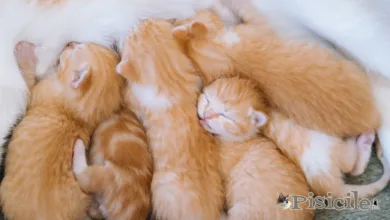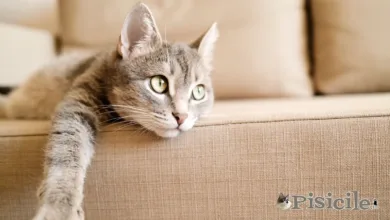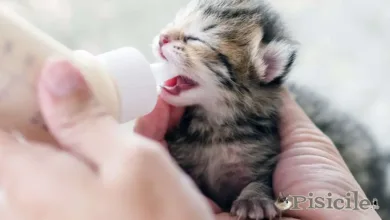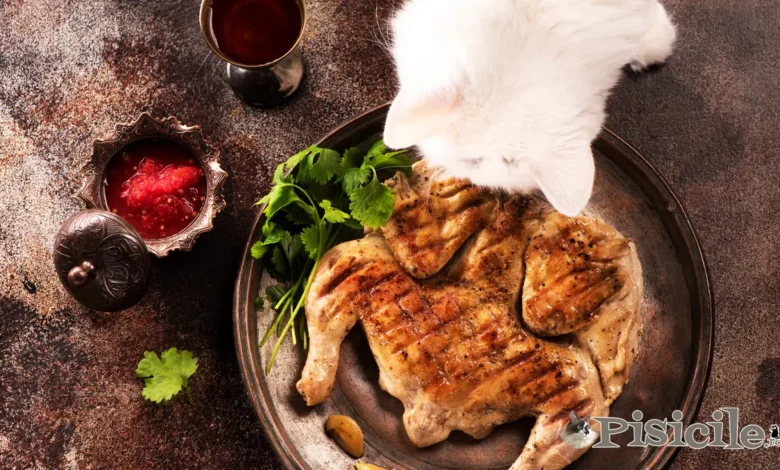
There are many cats that, although they receive special food for them, are very tempted to ask for human food. Even though cats can get almost anything they want with their style, you should know that many human foods are toxic to cats. That's why it's good to be very cautious when you're tempted to give your cat some of your food.
While there are human foods that can be safely eaten by cats, it is important to maintain a balance and avoid overeating. Human foods are not adequate to make up a cat's entire diet and do not provide the protein, fat, vitamins and minerals essential for optimal health.
Cats are carnivorous animals, which means that their main food should be of animal origin. Foods containing preservatives, artificial food dyes, carbohydrates and vegetables are not suitable for them because cats do not have the digestive enzymes needed to process them efficiently. Eating these foods can cause serious problems in your cat's digestive and nervous systems.
Subject
What human foods are toxic to cats?
A list of the most common human foods that are toxic to cats includes:
- Chocolate,
- Alcohol,
- Yeast dough or cake,
- Caffeine,
- Onion
- Garlic,
- Grapes and raisins,
- Raw fish,
- Raw meat and leftover fat,
- bones,
- raw eggs,
- Milk,
- Xylitol,
- Nuts,
- Avocado,
- Coconut water.
In addition to this list of human foods that are toxic to cats, it is important not to allow your cat to overeat tuna or dog food because, while these are not directly dangerous to cats, they do not provide the essential nutrients your cat needs. your needs to maintain optimal health!
Related: Toxic Essential Oils for Cats (doTERRA Top 5)
It is therefore essential to provide your cat with a balanced diet suitable for their specific nutritional needs, based on high-quality cat food that provides animal protein, healthy fats and all the nutrients they need to maintain health and well-being their. Avoiding human food and processed food is an important measure to ensure a long and healthy life for your cats.
Questions and Answers – Human Foods Toxic to Cats
Let's take a closer look at why some human foods are not good for cats to eat.
Can cats eat chocolate?
No, cats should not eat any type of chocolate, whether dark, white, milk or unsweetened. The risk associated with eating dark chocolate and cooking chocolate is greater than that of milk chocolate or white chocolate.
All varieties of chocolate contain two main methylxanthines, theobromine and caffeine, toxic substances that can cause dangerous cardiac arrhythmias (irregular heartbeats), central nervous system dysfunction, and even death in cats. However, theobromine is found in higher concentrations in dark and unsweetened chocolate.
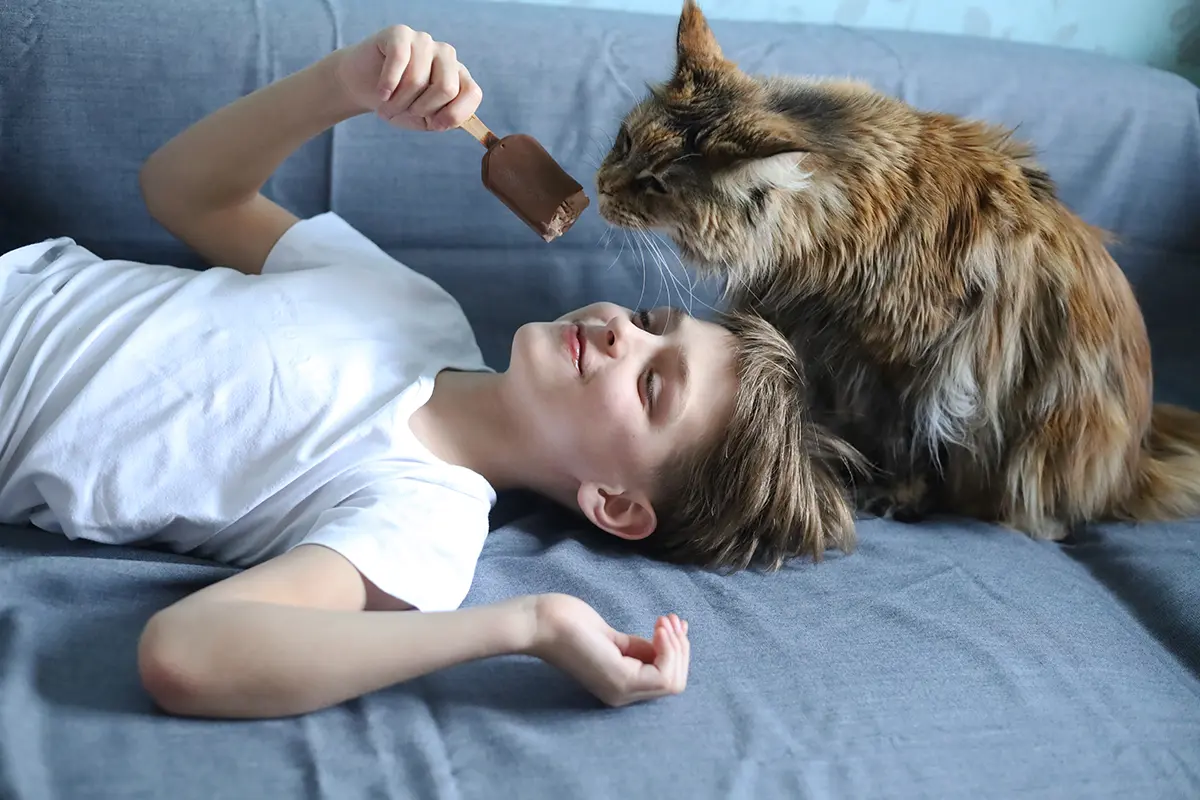
Even if your cat is tempted to taste the chocolate, avoid giving him this craving that can be extremely dangerous for his health.
Can cats drink alcohol?
No, cats should never have access to alcohol, whether it's wine, beer or any other beverage consumed by humans. Alcohol consumption can cause a number of serious problems for cats, including vomiting, diarrhea, disorientation, difficulty breathing, liver and brain damage, coma, and even death, depending on the amount consumed.
Alcohol is a significant danger to cats because it is quickly absorbed into the body, and even a small amount, such as a teaspoon, can cause serious harm or even death to a cat. It is important to keep all types of alcohol away from your cat, including beer, wine and spirits. Also, watch out for foods that may contain alcohol, such as vinegar, certain marinara sauces, rum-flavored cakes, wine-flavored cheeses, some types of Dijon mustard, liquor-infused truffles, and raw yeast dough.
If you are a responsible owner, you should never give alcohol to your pet just for fun or experimentation. If you suspect that your cat has consumed alcohol, contact a veterinarian immediately for appropriate assistance and advice. It is essential to treat alcohol poisoning in cats seriously.
Related: Can cats eat dog food? See recommendations.
Is coffee toxic to cats?
Yes, coffee is toxic to cats, specifically the caffeine in coffee can be toxic to cats when consumed in significant amounts. Even if a few sips of coffee or tea pose no imminent danger to your cat, doses of 100-150 mg of caffeine per kilogram of cat's body weight can be lethal. Excessive consumption of beverages such as coffee, tea, Coca-Cola and energy drinks can lead to caffeine intoxication in cats, manifested by symptoms such as agitation, restlessness, rapid breathing, palpitations and muscle spasms. Caffeine is also found in significant amounts in chocolate.
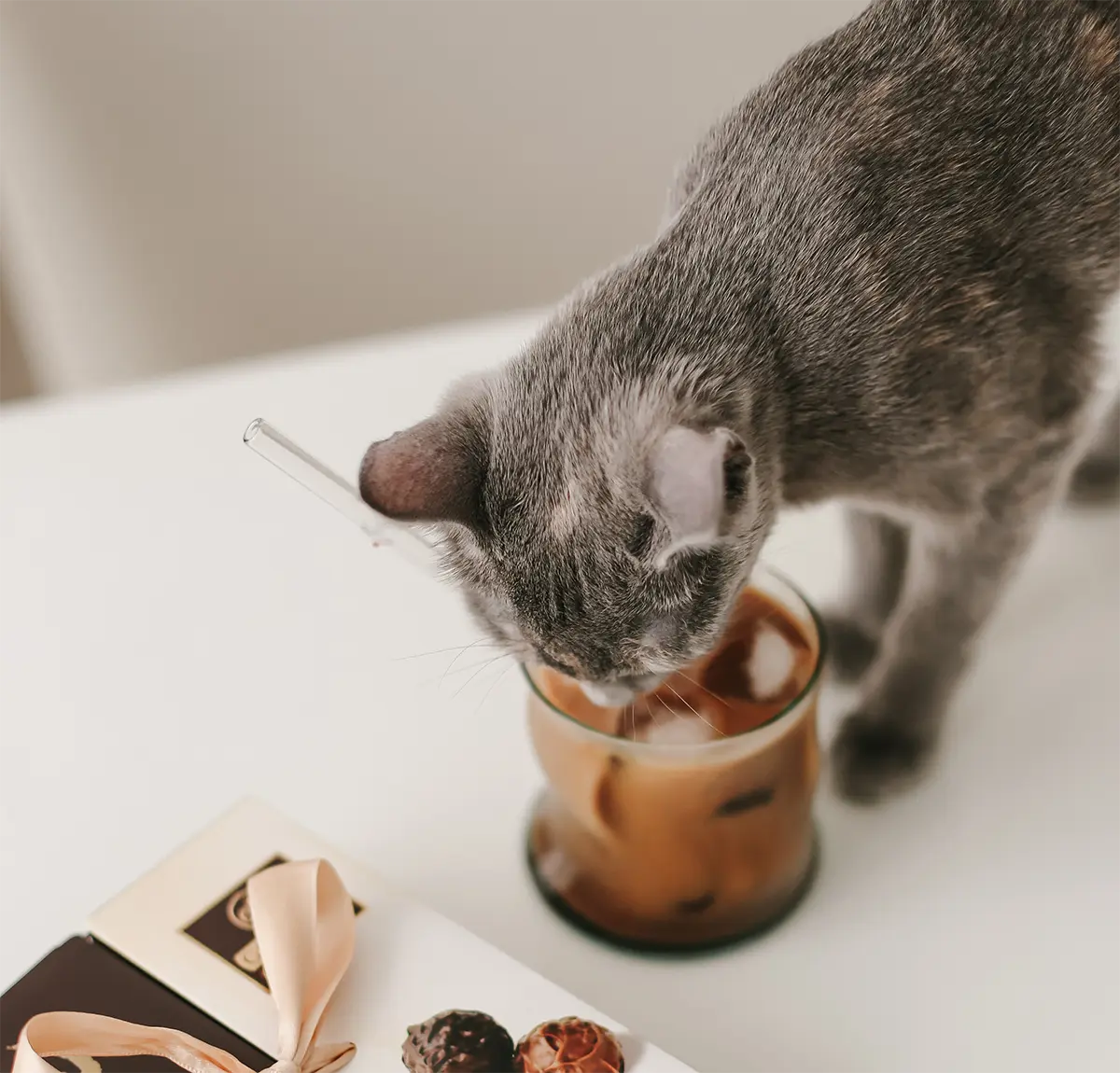
A typical glass of brewed coffee contains around 80-135 mg of caffeine, while filter coffee can have between 115-175 mg of caffeine in the same amount. A shot of espresso contains about 45-60 mg of caffeine. It is important to avoid your cat having access to such caffeinated drinks or foods, as this can have serious health consequences.
Is raw fish dangerous for cats?
Cats can eat raw fish, but it is recommended to avoid this. There are several reasons for this recommendation. First, raw fish can contain harmful bacteria, such as Clostridium, E. Coli (Escherichia coli), and Salmonella, which can cause long-term gastrointestinal problems in cats.
Second, most types of fish contain thiaminase, an enzyme that can break down thiamine (vitamin B1) in your cat's body. Cats cannot synthesize thiamine on their own, and a lack of this vitamin can lead to gastrointestinal upset, loss of appetite, and neurological complications.
Therefore, raw fish may pose an unnecessary risk to your cat's health. If you want to give him fish, it is safer to cook it first, avoiding adding artificial flavors, herbs, oils or spices that could irritate the cat's stomach.
There are some fish that can be safely offered to cats, preferably cooked, including salmon, perch, Atlantic cod, eel, trout (sea, lake and rainbow), bream, flounder, mackerel (Atlantic), molluscs, sea bass, pike and sole. However, it is important to note that most fish, including tuna, contain thiamine and should be avoided.
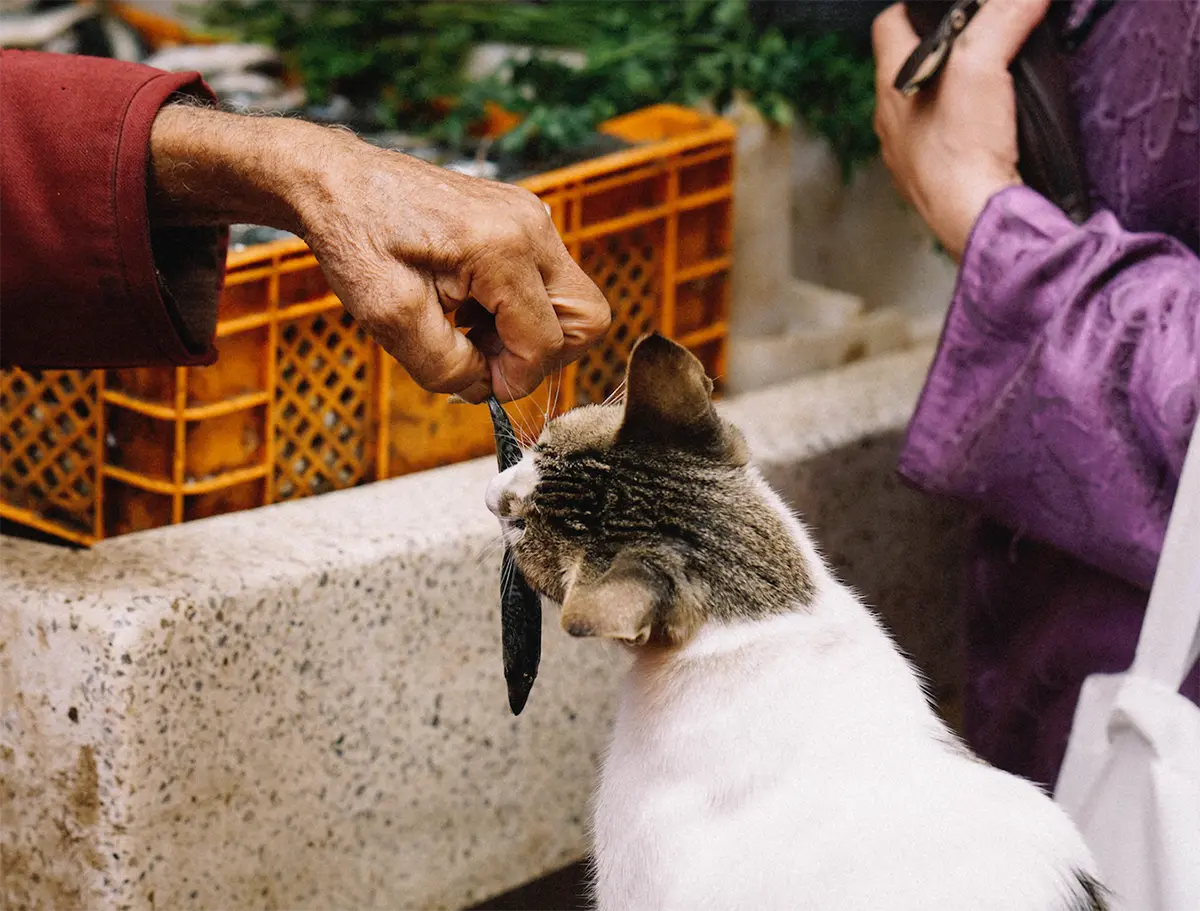
Of course, here we are talking about the cat raised in the house or in the household, whose diet we can control. In the wild, cats are skilled fishermen and often jump into the water to catch fish.
In conclusion, many human foods are toxic to cats and can pose a serious threat to the health and well-being of these pets. It is essential to know and avoid the foods and substances that can adversely affect them and to ensure that we provide our cats with an appropriate diet to maintain their optimal health.
